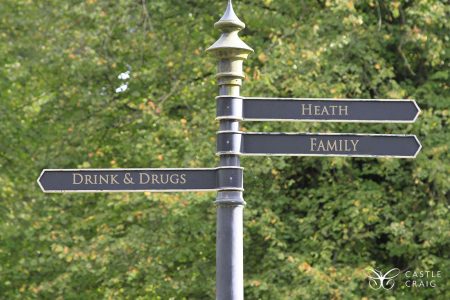Christmas in recovery
If you’re in recovery, the holiday season can be especially difficult and, let’s be honest, not so jolly. It doesn’t matter how far into recovery you are, whether it’s days or decades, the holidays come with their own set of challenges.
Rehab Costs & Options for Alcohol | Drugs | Other addictions
Holidays are great if you’re in the business of selling beer, wine and spirits, but they’re not so great if you’re an alcoholic. In one survey, found that around 47 per cent of men and 40 per cent of women stated they binge drink during the holidays, according to statista.com.
We like to look at these challenges as opportunities for us to assert our commitment to sobriety, rather than temptations to fall off the wagon, as the saying goes. Try to look at temptations as opportunities to reaffirm or renew your commitment to staying sober year-round. Yes, that’s easier said than done, so read on for more tips on staying sober during the holidays.
Staying sober during the holidays
“Staying sober during the holidays is simple,” said no one ever. But if you plan ahead, you can do it. The three principles below — planning ahead, asking for help and avoiding triggers — will help you enjoy your holiday season.
Plan ahead for a sober holiday
The key to succeeding with any goal, whether it involves staying sober, losing weight, or living a healthier life, is to arm yourself with a plan. Look at your calendar and note the events that are coming up where alcohol will be served. Can you skip events that you know will be more difficult? Or, can you formulate an exit strategy so you can leave before the atmosphere becomes too festive for your sobriety?
Get help from friends
If you are in a 12 Step programme and have a sponsor, now is a great time to have a conversation with him or her about your anxiety about staying sober during the holidays. Involve your sponsor and your sober friends in your plan for a sober holiday. Let them know how difficult this time of year is for you, and let them know how they can help you not drink.
If you are invited to holiday parties, let the host or hostess know that you are in recovery. That way, they won’t take offense if you don’t partake in their open bar and spiked desserts; likewise, if you leave early, they won’t be offended.
Avoid alcohol triggers
Think about Christmas triggers that led you to drink in the past. There may be family or friends who are particularly difficult to be around — and we all have these people in our lives. Beware of the triggers that we in recovery refer to as HALT — hungry, angry, lonely and tired. All four of these feelings are common triggers for everyone.
You can’t necessarily avoid those HALT triggers; after all, your feelings are your feelings. However, you can recognise them when they show up so you can have a plan — there is that word again, plan — to address them. You can’t control your feelings, but you can control the way you react to them.
- Hunger — Have healthy non-sugary and fiber-rich snacks and foods at home, and consider carrying light snacks such as protein bars, nuts, fresh fruit or low-sugar food bars that you can eat when a craving arises. There are some associations between low blood sugar levels and alcohol cravings; when you consume a lot of sugar, that can cause your sugar levels to drop, which in turn induces cravings.
- Anger — What are those topics that really get to you and trigger feelings of anger? We give you our blessing to turn your attention away from world politics, news and other subjects that you have no control over. Remember the AA mantras, “How important is it?” and “Let go, let God.”
- Loneliness — There is nothing lonelier than being in a room full of people and still feeling lonely. What is the cure for loneliness? Talk with your addiction counsellor, sponsor and sober friends. Everyone has felt lonely at one time or another. What do they do when the feeling creeps up and triggers them to drink? Remember that others are probably feeling the same stress, anxiety and loneliness as you; you are not alone! One tactic we like to recommend to stave off loneliness is to volunteer. When you serve others, you take the focus off yourself, and you build empathy and compassion for your fellow humans.
- Tiredness — A good night’s sleep is key to healthy living and our overall well-being. To avoid being tired, which can weaken your willpower to stay sober, follow these steps to getting a better night’s sleep: Watch what you eat before bedtime, avoid late-night snacking and drinking, set aside 30 to 60 minutes of time for screen-free reflective thinking or meditation time, and turn your bedroom into a sanctuary.
Christmas mocktails
We always caution our sober friends about the potential for alcohol-free cocktails to trigger their cravings for alcohol. Be aware of the potential for “mocktails” to trigger your cravings for alcohol. If this is you — stick with simple chilled water with a twist of lemon, or a seltzer water with a twist of lime. However, for those who won’t be triggered by a mocktail, they can be an excellent way to enjoy the holidays without indulging in alcohol and relapsing.
Is it time for a rehab holiday?
Addiction treatment during the holidays could be the best gift you give to yourself and your loved ones. If you’ve been struggling with alcohol addiction, talk to us.



